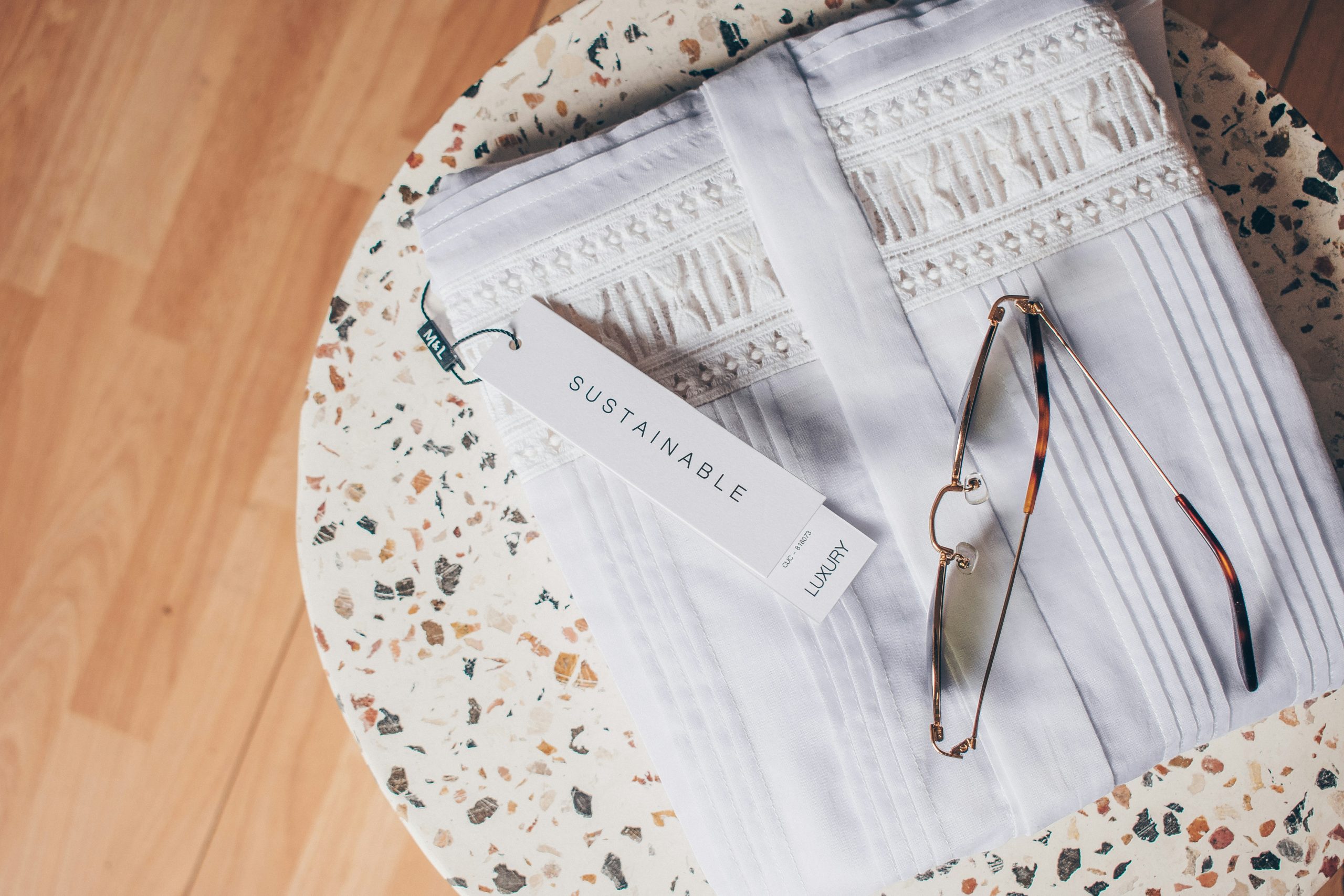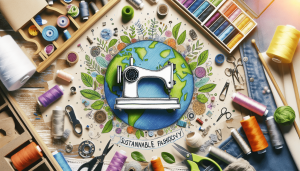Hey, everyone! Let’s dive into a topic that’s incredibly close to our hearts—ethical fashion. In a world dominated by fast fashion, we often overlook the consequences our choices have on people and the planet. Ethical fashion is all about making mindful, considerate decisions when it comes to our wardrobe. It’s about ensuring fair wages, safe working conditions, and minimal environmental impact. By supporting ethical fashion, we contribute to a more just and sustainable world, making a positive impact with every garment we choose. Curious to learn more about why ethical fashion matters and how it shapes our future? Stick around; this one’s for all of us! Have you ever wondered why ethical fashion is becoming such a hot topic? While it might seem like just another trendy catchphrase, ethical fashion has deep roots in our collective responsibility to the planet, our workforce, and our future. Let’s delve into the world of ethical fashion and understand why it’s not just important but imperative for a sustainable future.

What is Ethical Fashion?
Ethical fashion is more than just eco-friendly materials and fair wages; it represents a holistic approach to fashion production and consumption. It’s a conscious effort to reduce the negative impact of the fashion industry on the environment and society. In essence, ethical fashion encompasses a wide array of practices aimed at promoting fairness, sustainability, and transparency within the fashion ecosystem.
Deconstructing Ethical Fashion
Ethical fashion can be broken down into several core components, each addressing key issues within the fashion industry.
| Component | Description |
|---|---|
| Sustainable Materials | Using eco-friendly, biodegradable, or recycled materials in clothing production. |
| Fair Labor Practices | Ensuring that workers are paid fairly, work in safe conditions, and are not exploited. |
| Animal Welfare | Avoiding the use of animal products or ensuring ethical treatment of animals used in production. |
| Environmental Impact | Minimizing pollution, waste, and carbon footprints associated with fashion production. |
Why Ethical Fashion Matters
Understanding the ‘why’ behind ethical fashion is crucial. It’s not just about feeling good about our purchases; it’s about fostering a sustainable ecosystem that benefits everyone.
Environmental Impact
One of the most glaring issues with conventional fashion is its environmental footprint. Traditional fashion practices involve an overwhelming amount of pollution, waste, and carbon emissions. By adopting ethical fashion, we can significantly reduce these negative impacts.
Pollution and Waste Reduction
The fashion industry is notorious for its pollution. Toxic dyes, untreated wastewater, and excessive plastic use all contribute to environmental degradation. Ethical fashion aims to minimize these pollutants by opting for natural dyes, biodegradable materials, and sustainable production techniques.
Fair Labor Practices
Another significant concern in conventional fashion is the exploitation of workers. From underpaid labor in sweatshops to unsafe working conditions, the industry is rife with unethical labor practices. Ethical fashion prioritizes fair wages, safe work environments, and respect for workers’ rights.
Worker Rights and Fair Wages
Paying workers fairly and ensuring safe working conditions are non-negotiable aspects of ethical fashion. This not only improves the lives of workers but also contributes to better quality products as happier, healthier workers are more productive and engaged.
Animal Welfare
Ethical fashion often extends to how animals are treated within the fashion industry. This includes avoiding animal products altogether or ensuring that any used are sourced in a cruelty-free manner.
Cruelty-Free Practices
Avoiding materials like fur, leather, and exotic skins is a common practice in ethical fashion. When animal products are used, they should come from sources that treat animals humanely and ensure their welfare.
Consumer Awareness
As consumers, we have immense power in shaping industries. Ethical fashion encourages us to be more conscious of our buying choices, urging us to support brands that align with our values.
The Role of Transparency
Transparency is a cornerstone of ethical fashion. Brands that openly share their manufacturing processes, labor practices, and sourcing decisions help us make informed choices about what we wear.
The Broader Impact of Ethical Fashion
The importance of ethical fashion extends beyond individual practices and consumer choices. It has broader societal, economic, and environmental impacts that collectively contribute to a more sustainable world.
Societal Benefits
Ethical fashion promotes a more equitable society by advocating for fair labor practices and supporting marginalized communities. Brands that embrace ethical fashion often invest in social initiatives, healthcare, and education for their workers.
Economic Impact
While ethical fashion products often come with a higher price tag, this is reflective of fair wages, sustainable practices, and high-quality materials. Investing in ethical fashion can boost local economies and promote sustainable business practices.
Environmental Preservation
By reducing pollution, waste, and resource consumption, ethical fashion plays a crucial role in preserving our natural environment. This not only helps mitigate climate change but also ensures that future generations have access to clean air, water, and fertile land.
Challenges in Adopting Ethical Fashion
While the benefits are clear, adopting ethical fashion isn’t without its challenges. From higher costs to limited accessibility, there are several hurdles that both consumers and brands face.
Higher Costs
One of the most common challenges is the higher cost associated with ethical fashion. Sustainable materials and fair wages contribute to a steeper price tag, which can be a deterrent for cost-conscious consumers.
Breaking Down the Costs
Here’s a comparison to illustrate the difference in costs:
| Aspect | Conventional Fashion | Ethical Fashion |
|---|---|---|
| Materials | Cheap, synthetic | Organic, recycled |
| Labor | Underpaid, unsafe | Fair wages, safe |
| Environmental Impact | High pollution | Low impact |
Limited Accessibility
Ethical fashion is not as widely available as conventional fashion. Many ethical brands operate on a smaller scale, making it difficult for consumers to find and purchase their products.
Expanding Reach
To overcome this, ethical brands need to increase their market presence and educate consumers on the importance of ethical fashion. This can be achieved through collaborations, digital marketing, and participation in mainstream retail.
Consumer Awareness and Education
A significant barrier to the widespread adoption of ethical fashion is the lack of consumer awareness. Many people are not fully aware of the negative impacts of conventional fashion or the benefits of ethical alternatives.
Promoting Conscious Consumerism
Brands and advocacy groups must invest in educating consumers about the importance of ethical fashion. This can be done through educational campaigns, social media engagement, and transparent communication.

Embracing Ethical Fashion
Despite the challenges, there are practical steps we can take to embrace and promote ethical fashion in our daily lives.
Supporting Ethical Brands
One of the most effective ways to support ethical fashion is by purchasing from brands that prioritize sustainability and ethical practices. Do your research and choose brands that align with your values.
Noteworthy Ethical Brands
Here are a few examples of brands that have made significant strides in ethical fashion:
| Brand | Description |
|---|---|
| Patagonia | Known for sustainable materials and fair labor practices. |
| Everlane | Focuses on transparency in pricing and sourcing. |
| People Tree | Pioneers in fair trade and eco-friendly fashion. |
Educating Ourselves
Being informed consumers means understanding the broader impacts of our purchasing decisions. Take the time to learn about the materials, production methods, and business practices of the brands you support.
Resources for Learning
There are many resources available to help us understand more about ethical fashion:
| Resource | Description |
|---|---|
| Documentaries | “The True Cost” (examines the impact of fast fashion) |
| Books | “Fashionopolis” by Dana Thomas (explores the future of fashion) |
| Websites | Ethical Fashion Forum, Fashion Revolution |
Advocating for Change
We can contribute to the ethical fashion movement by advocating for change within our communities and industries. This includes supporting legislation that promotes fair labor practices and environmental sustainability.
Getting Involved
Consider participating in local initiatives, joining advocacy groups, or even starting conversations about ethical fashion within your social circles.
The Future of Ethical Fashion
The future of ethical fashion is promising, with increasing consumer demand and innovative solutions on the horizon. However, it requires collective effort and commitment from brands, consumers, and policymakers.
Technological Advancements
Technological innovation is playing a crucial role in advancing ethical fashion. From sustainable fabrics to waste reduction techniques, technology is helping make ethical fashion more accessible and effective.
Examples of Innovation
| Innovation | Description |
|---|---|
| Biodegradable Fabrics | Fabrics that decompose naturally, reducing waste. |
| 3D Printing | Reduces material waste and allows for custom-fit clothing. |
| Blockchain | Increases transparency in supply chains, ensuring ethical practices. |
Policy and Regulation
Governments and regulatory bodies are increasingly recognizing the importance of ethical fashion. Policies that promote sustainability, fair labor, and environmental protection are being implemented worldwide.
Key Legislation
Here are some examples of legislation aimed at promoting ethical fashion:
| Policy | Region | Description |
|---|---|---|
| UK Modern Slavery Act | United Kingdom | Requires companies to report on efforts to combat slavery and human trafficking. |
| California Supply Chain Transparency Act | California, USA | Mandates disclosure of efforts to eliminate slavery and human trafficking. |
| EU Circular Economy Action Plan | European Union | Aims to reduce waste and promote sustainable production practices. |
Community Engagement
Building a community around ethical fashion is crucial for its success. Brands, consumers, and activists must work together to create a culture of sustainability and ethics within the fashion industry.
Building a Movement
Join or support organizations and movements that advocate for ethical fashion. Participate in ethical fashion events, workshops, and campaigns to stay engaged and informed.

Conclusion
Ethical fashion is not just a trend; it’s a necessary shift towards a more sustainable, fair, and transparent fashion industry. By understanding its importance and taking actionable steps to embrace it, we can collectively make a positive impact on our world. So, let’s commit to ethical fashion and work towards a brighter, more sustainable future. After all, the future of fashion lies in the choices we make today.



